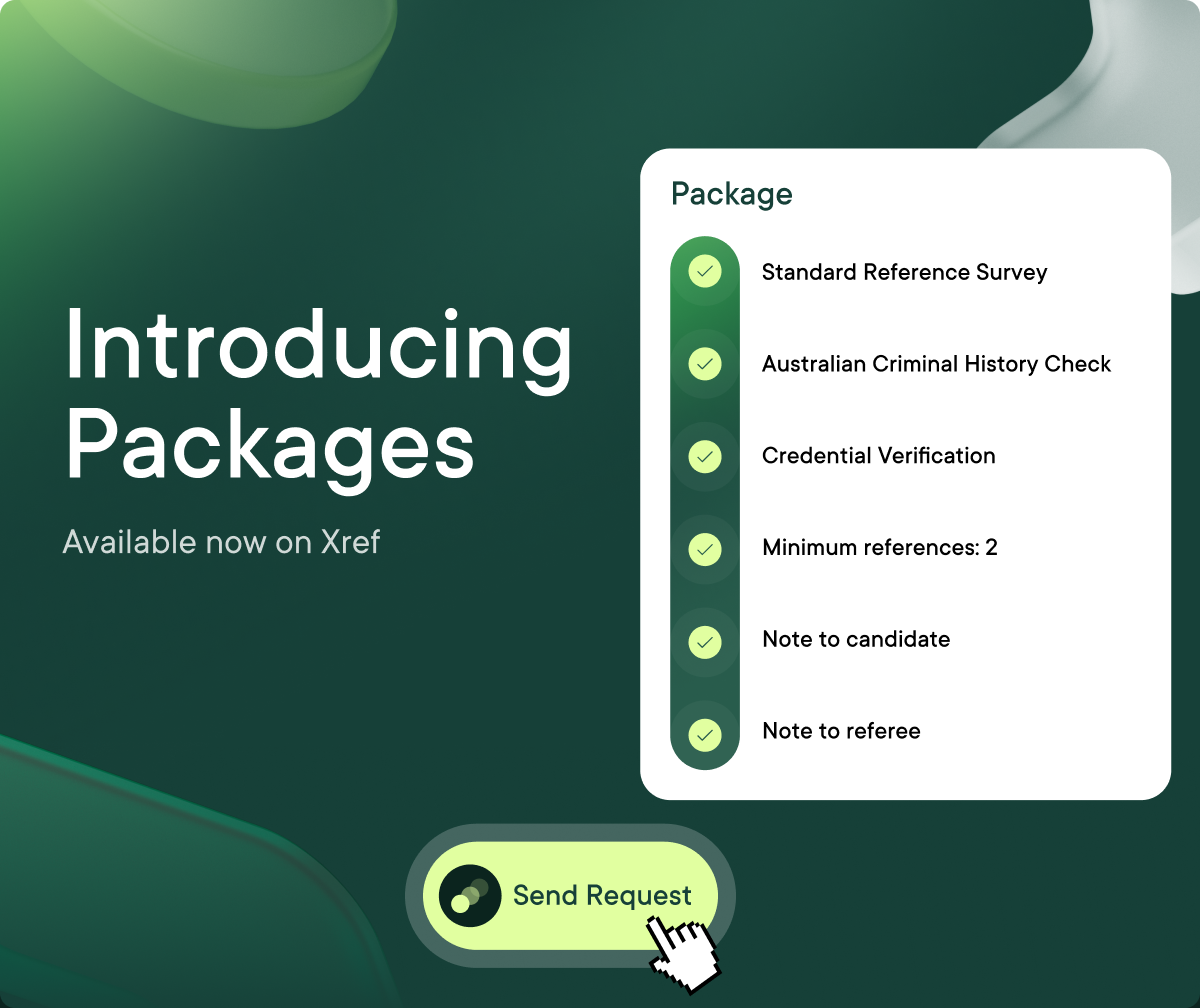


Give your people a voice with a tailored Xref Engage survey.
Increase retention and reduce turnover with quick employee feedback from an Xref Pulse Survey.
Our latest research, the Australian Recruitment Risk Index has revealed that more than 70 percent of people surveyed admitted to taking advantage of flaws in the hiring process to better their chances of landing a job.
Outdated methods have made it far too easy for candidates to position themselves favourably. Our survey also found job seekers were willing to go even further to improve their employment chances, by deliberately lying (42 per cent) and asking referees to lie on their behalf (23 per cent). The most common way for applicants to mislead bosses is by providing the details of an inappropriate referee, asking someone they didn’t work closely with (11 percent), a friend (16 percent) or even a family member (11 percent).
Whilst candidates are manipulating their applications to improve their chances of securing the job, the inconsistencies and inefficiencies in the employer’s recruitment process is limiting the success of the reference checking process. As part of this process, it is important to ensure that the right questions are asked to a referee from the outset.
The questions asked must determine the relationship between the candidate and referee, help the employer understand the applicant and accurately assess the candidate’s previous performance. Once you know how the applicant and the referee are connected, you’ll be better able to judge how reliable and relevant the information they’re providing is and how it relates to their new role.
Verifying whether the applicant’s previous job title, responsibilities, remuneration and dates of employment are accurate will help employers understand the candidate. Asking a referee to describe the candidate’s overall performance, identify their core competencies or any areas that they should focus on and establish why they left their previous organisation will allow an accurate assessment of previous performance.
However, if you only ask a referee a single question, it should be whether they would re-employ the candidate. This can tell you so much about how they were perceived and the quality of their work.
It is also important to ensure the questions asked to candidates avoid discrimination. Inconsistencies and lack of experience driving the process led to 29 percent of those that had acted as a referee being asked discriminatory questions about the individual they were providing details for. Questions including age (15 per cent), whether the candidate has children (11 percent), their marital status (ten per cent) and their sexual orientation (seven per cent) are still high.
A lack of standardisation in reference checking leaves organisations open to risk. Getting the process right is absolutely critical to ensuring you get the best people through the door before they go elsewhere.
Download the 2016 Recruitment Risk Index here.
